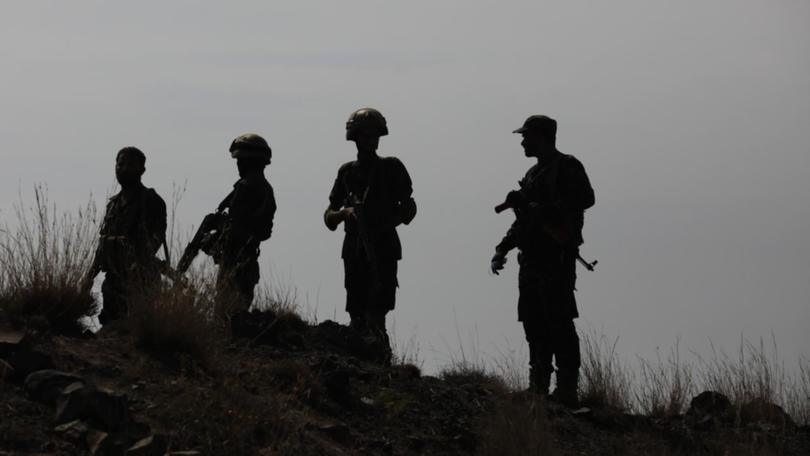Australian foreign fighters who enter terror zones face strict penalties as crackdown extended
The federal government is set to extend laws banning Australians from travelling to areas overseas known to be terror hotspots.

Australians entering declared terrorist hotspots will face strict penalties upon their return, as the government extends laws cracking down on foreign fighters.
Provisions allowing a minister to declare an overseas zone and ban Australians who have visited the area from returning are set to be extended for an extra three years, after laws cleared the lower house on Monday.
The laws are due to expire in September, but the federal government is seeking to extend the measure for three years until 2027.
Sign up to The Nightly's newsletters.
Get the first look at the digital newspaper, curated daily stories and breaking headlines delivered to your inbox.
By continuing you agree to our Terms and Privacy Policy.No areas overseas are currently listed as a declared area, although provinces in Iraq and Syria have previously been named as hotspots.
The laws were originally drafted in response to the threat of the terrorist group Islamic State and fears Australians could travel overseas and enlist.
Four people have been charged with offences since the laws were created.
Independent MP Zoe Daniel said the laws were out of date, with no hotspots being declared after they were used to combat foreign fighters joining Islamic State.
Ms Daniel questioned whether the laws would be rolled over forever.
Chair of parliament’s intelligence and security committee Peter Khalil rejected Ms Daniel’s characterisation, saying the laws weren’t put in place to deal with a single, specific threat.
“The law itself pertains to the government making an assessment and declaring an area and that could be for many other reasons, many other terrorist groups,” he told AAP.
Attorney General Mark Dreyfus said the extension was necessary to prepare for future threats.
“The offence plays a role in the disruption and prosecution of returning foreign fighters and their associates,” he said.
The moves come as the intelligence committee officially endorsed the attorney general’s listing of Ansar Allah, known as the Houthis, as a terrorist organisation.
The Yemen-based rebels have attacked foreign ships passing through the Red Sea, sparking the US to head an international coalition to counter the attacks.
“It was pretty clear-cut evidence, since 2022, there were some 19 terrorist attacks conducted by Ansar Allah,” Mr Khalil said.
The Criminal Code states it is an offence to “enter a foreign country with an intention to engage in a hostile activity unless serving in or with the armed forces of the government of a foreign country”.
The Government, along with security agencies, do have the means to identify and keep tabs on individuals of national security interest likely to participate in or support offshore conflicts.
A spokesperson for the Department of Home Affairs said the Government was “alert to the potential” of people serving with foreign militaries.
But The Nightly revealed last week that the federal government was not keeping tabs on whether Australians were heading overseas to fight for foreign militaries, including the Russian defence force, in what experts said could be a risk to national security.
The Home Affairs Department and Australian Border Force said they “do not track individuals travelling overseas intending to serve in foreign military services” in response to questions on notice from the last round of senate estimates.
The department and ABF said while they were not aware of any Australian residents joining the Russian military, they believed four had travelled to serve the Israeli Defence Force since October 7, but did not have an exact figure.
A spokesperson for the Department of Home Affairs said the Government was “alert to the potential” of people serving with foreign militaries.
The Coalition’s foreign affairs spokesman Simon Birmingham said the matter deserved “serious attention”.
The Coalition has called for areas of southern Lebanon to be put on the declared list, due to parts of it being controlled by the Iran group Hezbollah.
The laws and listing come against the backdrop of Australia’s security agency ASIO raising the terror threat level from “possible” to “probable”.
The change on August 5 was the first time the terror threat level had increased since 2014, when it was raised due to the threat of Islamic State.
